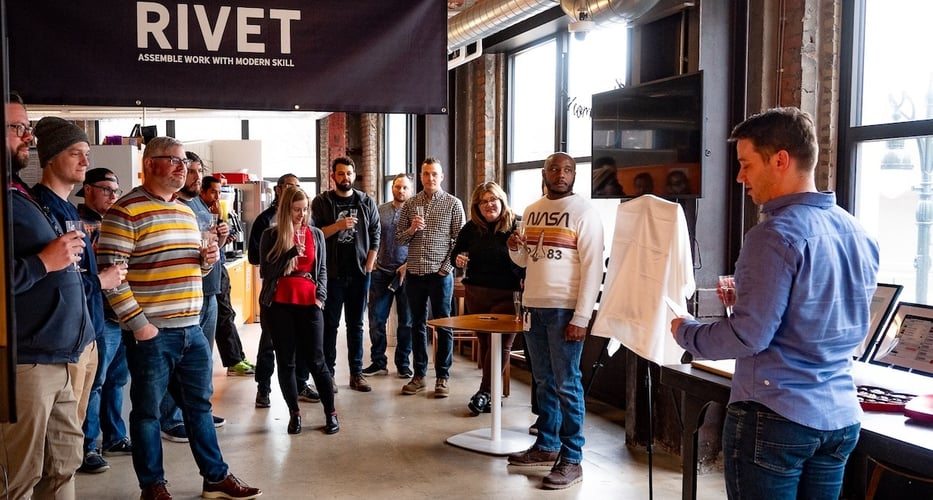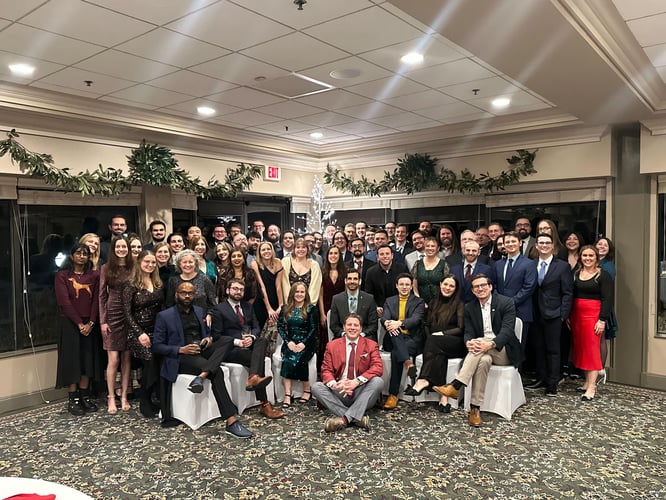Kristen Candler is no stranger to the creator economy.
It’s an industry that’s expected to grow at a 10-20% compound annual rate over the next five years, and Kristen knows first-hand its rewards — and its downfalls.
About three and half years ago, Kristen was creating videos about comedian and actor Dick Gregory and uploading them to YouTube. He gained a following of over 21,000 people and started making money from the platform, usually around $2,000 a month. When he received a check for $10,000 one month, he realized there was a lot of untapped potential here.
Until YouTube suddenly prevented Kristen’s videos from monetization. He suspects it may have had something to do with the video titles, but he never got a straight answer.
Meanwhile on Instagram, where he had 15,000 followers, he was making no money. The disparity between the platforms and oppressive tactics frustrated him, and he took a brief hiatus from the creator life.
Now, he’s taking on a new adventure: startup founder.
The idea was inspired by his frustration with these platforms, and when he thought about a platform that he wanted to be a part of, he got to work on patent-pending technology to “liberate content creators from these platforms,” he says. “That’s where the story of Minchyn begins.”

Kristen Candler, founder of Minchyn
Micro Influencers, Macro Problems
There are over 300 million global content creators, but only about 18% of those are considered “professional” creators, making over $100,000 annually. Of those 300 million creators, about 72% have less than 15,000 followers and are considered “micro-influencers.”
“Their content makes up the bulk of media that we are viewing daily and they add substantial value to platforms like Instagram, TikTok and X,” says Kristen. “However, they are overlooked and undervalued.”
Only 1% of followers are reached on Instagram, and 4% on TikTok. If you’re an influencer with 100,000 followers, brands will be less likely to work with you because your content is only going to reach about 1,000 people. That’s because algorithms suppress content and individuals because they want brands to pay for advertising in order to reach people, Kristen says.
Oppressive algorithms plus a lack of democratization in the creator economy has led to vast pay disparities. Kristen also says it’s an issue with our culture as consumers, comparing it to the music industry. We want unlimited access to content, and we want it to be as cheap as possible.
There’s no denying that these creators add value to the people who consume the content, and to the platforms. But the way things exist now, these creators are hardly getting compensated for their work.
Meet Minchyn: A Symbiotic Community
To address these problems and liberate creators from the oppressive practices of social media platforms, Kristen has created Minchyn, a next-generation social media and demand-side platform.
The app helps creators easily monetize their posts, giving them the ability to generate residual income. An AI-powered marketplace helps advertisers discover and license creator content. They rent content directly from the creator, making it more affordable for the advertiser and bringing in more revenue for the creator. Plus, Minchyn handles all of the licensing and management so creators can focus on doing what they love doing.

Minchyn platform
In addition, the app can integrate with multiple publishing tools, and it delivers stats and data about their content and portfolio. It also makes sure creators get paid monthly.
“Minchyn is revolutionizing the way content creators create, distribute and monetize their content and brand. But more importantly, it’s liberating people from the platforms that aren’t helping them thrive,” says Kristen.
He says that apps are meant to be useful, to add value to our lives, and Minchyn is designed to be service-oriented and to take care of the people that bring value to the creator economy. But it’s also so much more.
“It’s a revolution in social media that empowers and rewards users. And it transforms the way we connect and communicate online. And I don’t think it’s just an early startup. It’s a paradigm shift waiting to happen,” Kristen says.
Beyond being a helpful app, Minchyn is on a mission to be a real community for content creators.
“Ultimately, our vision is to cultivate a vibrant community where creators—and users in general—can thrive, collaborate and inspire the next generation of storytellers,” Kristen says.
It’s about standing up and fighting for the creative community and building a symbiotic ecosystem where creators, supporters, brands, and advertisers are all helping each other reach their goals.
“It’s going to be the platform that democratizes the creator economy, enabling creators from all walks of life to better engage and build human relationships with their supporters and also build relationships with brands and companies.”
And as more and more content creators find the support they need, the more quality content we’ll see. Minchyn gives creators the tools to compete so that higher quality content can cut through the noise and be given a fair chance.
“It’s a revolution in social media that empowers and rewards users. And it transforms the way we connect and communicate online.”
Beta and Beyond
Minchyn is still in its early stages and looking forward to completing a minimum viable product and beta launch. Kristen says about 60% of the code is done, and the company is continuing to look for funding to support its development.
After failing to raise venture capital in 2023, Kristen has turned to alternative ways of funding, including bootstrapping, crowdfunding, and a unique NFT project called Waitlist+.
“Raising capital for anyone is no easy task, but I believe it’s a bit more challenging being in the Midwest, where, for many, there is a gap in knowledge, definitely a lack of access to network and capital,” says Kristen. “It's just a totally different culture in the Midwest than in Silicon Valley, especially here in Michigan, where the mantra is all about bootstrapping, grit, and getting it out of the mud, so to say. Not to mention, as for those of us who are underrepresented, we’re often overlooked, making it even tougher.”
Black founders in the U.S. raised 0.48% of all venture dollars allocated last year in 2023 according to the latest Crunchbase data. That number is the lowest it’s been in recent history. There’s been a consistent yearly decline in funding since the murder of George Floyd in 2020, which saw a record-breaking amount of capital flow to Black founders as the tech industry promised to better support underrepresented founders.
Kristen sees similarities between this challenge and those ones he’s setting out to solve with Minchyn. A major challenge for underrepresented founders is proximity: many do not have a network of people to make introductions to investors or have family who can help with funding.
“Challenges with accessing capital aren't only a problem that Minchyn and myself are having, it's a broader issue and it has similar parallels to the challenges that content creators face. Not only are we championing overlooked and undervalued content creators, but we are also championing paradigm shifts, democratization and inclusive ideals, and with that comes championing all human beings and self-expression.”
As Minchyn seeks to raise money in alternative ways, they’ve also set up a crowdfunding campaign via Wefunder.
Minchyn isn’t only looking for funding: they’re also looking for engineers.
The team of three (which includes Kristen, his younger brother and a friend) are looking for a CTO and potentially another software engineer.
“Challenges with accessing capital aren't only a problem that Minchyn and myself are having, it's a broader issue and it has similar parallels to the challenges that content creators face.”
As he looks to hire, Kristen is searching for someone with vision, creativity, skills, grit, determination, and the desire to make an impact. The team is also thinking about ways to diversify and would especially like to hire a female CTO to come onboard.
“There’s a lack of representation not just at the executive level but across the board in tech. In my mind, I want to do my part in terms of getting more women into the industry,” Kristen says.
As the team works towards major milestones this year and gets to their beta launch, Kristen is staying focused on what truly matters to him: the journey.
“Express yourself. Get into things that you’re curious about. You never know where it will take you. Just jumping into this startup, I’ve met so many beautiful and wonderful people through this journey and learned a great deal,” he says. “Even if you’re not climbing that ladder or that hill as fast as you want, or even if you slip down, it’s still something fruitful that you can pull from. It’s still a lesson within the journey, and that’s the best part about anything.
To learn more about Minchyn, follow its journey, or join the waitlist, visit https://minchyn.com/ and follow Kristen Candler on LinkedIn.







.png?width=50&name=Erin%20Gregory%20(1).png)
